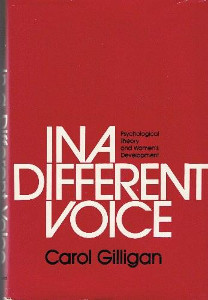Related Research Articles
Business ethics is a form of applied ethics or professional ethics, that examines ethical principles and moral or ethical problems that can arise in a business environment. It applies to all aspects of business conduct and is relevant to the conduct of individuals and entire organizations. These ethics originate from individuals, organizational statements or the legal system. These norms, values, ethical, and unethical practices are the principles that guide a business.
Ethics is the philosophical study of moral phenomena. Also called moral philosophy, it investigates normative questions about what people ought to do or which behavior is morally right. The main branches of ethics include normative ethics, applied ethics, and metaethics.
Normative ethics is the study of ethical behaviour and is the branch of philosophical ethics that investigates questions regarding how one ought to act, in a moral sense.
Lawrence Kohlberg was an American psychologist best known for his theory of stages of moral development.
This index of ethics articles puts articles relevant to well-known ethical debates and decisions in one place - including practical problems long known in philosophy, and the more abstract subjects in law, politics, and some professions and sciences. It lists also those core concepts essential to understanding ethics as applied in various religions, some movements derived from religions, and religions discussed as if they were a theory of ethics making no special claim to divine status.

Virtue ethics is an approach that treats virtue and character as the primary subjects of ethics, in contrast to other ethical systems that put consequences of voluntary acts, principles or rules of conduct, or obedience to divine authority in the primary role.
In moral philosophy, deontological ethics or deontology is the normative ethical theory that the morality of an action should be based on whether that action itself is right or wrong under a series of rules and principles, rather than based on the consequences of the action. It is sometimes described as duty-, obligation-, or rule-based ethics. Deontological ethics is commonly contrasted to consequentialism, utilitarianism, virtue ethics, and pragmatic ethics. In this terminology, action is more important than the consequences.

Carol Gilligan is an American feminist, ethicist, and psychologist, best known for her work on ethical community and ethical relationships.
An ethical relationship, in most theories of ethics that employ the term, is a basic and trustworthy relationship that one individual may have with another, that cannot necessarily be characterized in terms of any abstraction other than trust and common protection of each other's body. Honesty is very often a major focus.
Moral reasoning is the study of how people think about right and wrong and how they acquire and apply moral rules. It is a subdiscipline of moral psychology that overlaps with moral philosophy, and is the foundation of descriptive ethics.
Lawrence Kohlberg's stages of moral development constitute an adaptation of a psychological theory originally conceived by the Swiss psychologist Jean Piaget. Kohlberg began work on this topic as a psychology graduate student at the University of Chicago in 1958 and expanded upon the theory throughout his life.
Evolutionary ethics is a field of inquiry that explores how evolutionary theory might bear on our understanding of ethics or morality. The range of issues investigated by evolutionary ethics is quite broad. Supporters of evolutionary ethics have argued that it has important implications in the fields of descriptive ethics, normative ethics, and metaethics.
The ethics of care is a normative ethical theory that holds that moral action centers on interpersonal relationships and care or benevolence as a virtue. EoC is one of a cluster of normative ethical theories that were developed by some feminists and environmentalists since the 1980s. While consequentialist and deontological ethical theories emphasize generalizable standards and impartiality, ethics of care emphasize the importance of response to the individual. The distinction between the general and the individual is reflected in their different moral questions: "what is just?" versus "how to respond?" Carol Gilligan, who is considered the originator of the ethics of care, criticized the application of generalized standards as "morally problematic, since it breeds moral blindness or indifference".

Kantian ethics refers to a deontological ethical theory developed by German philosopher Immanuel Kant that is based on the notion that "I ought never to act except in such a way that I could also will that my maxim should become a universal law.” It is also associated with the idea that “[i]t is impossible to think of anything at all in the world, or indeed even beyond it, that could be considered good without limitation except a good will." The theory was developed in the context of Enlightenment rationalism. It states that an action can only be moral if it is motivated by a sense of duty, and its maxim may be rationally willed a universal, objective law.

In a Different Voice: Psychological Theory and Women's Development is a book on gender studies by American professor Carol Gilligan, published in 1982, which Harvard University Press calls "the little book that started a revolution".
The following outline is provided as an overview of and topical guide to ethics.
Ethics is the branch of philosophy that examines right and wrong moral behavior, moral concepts and moral language. Ethics or moral philosophy is a branch of philosophy that "involves systematizing, defending, and recommending concepts of right and wrong behavior". The field of ethics, along with aesthetics, concerns matters of value, and thus comprises the branch of philosophy called axiology.
Feminist ethics is an approach to ethics that builds on the belief that traditionally ethical theorizing has undervalued and/or underappreciated women's moral experience, which is largely male-dominated, and it therefore chooses to reimagine ethics through a holistic feminist approach to transform it.
Moral development focuses on the emergence, change, and understanding of morality from infancy through adulthood. The theory states that morality develops across a lifespan in a variety of ways and is influenced by an individual's experiences and behavior when faced with moral issues through different periods of physical and cognitive development. Morality concerns an individual's reforming sense of what is right and wrong; it is for this reason that young children have different moral judgment and character than that of a grown adult. Morality in itself is often a synonym for "rightness" or "goodness." It also refers to a specific code of conduct that is derived from one's culture, religion, or personal philosophy that guides one's actions, behaviors, and thoughts.
Don Collins Reed is an emeritus professor of ethics and history of philosophy at Wittenberg University.
References
- ↑ Kohlberg, L. (1984). The Psychology of Moral Development: The Nature and Validity of Moral Stages in Essays on Moral Development, Volume 2. Harper & Row.
- Helen Simons Robin Usher (2000) Situated Ethics in Educational Research ( ISBN 0-415-20666-9)